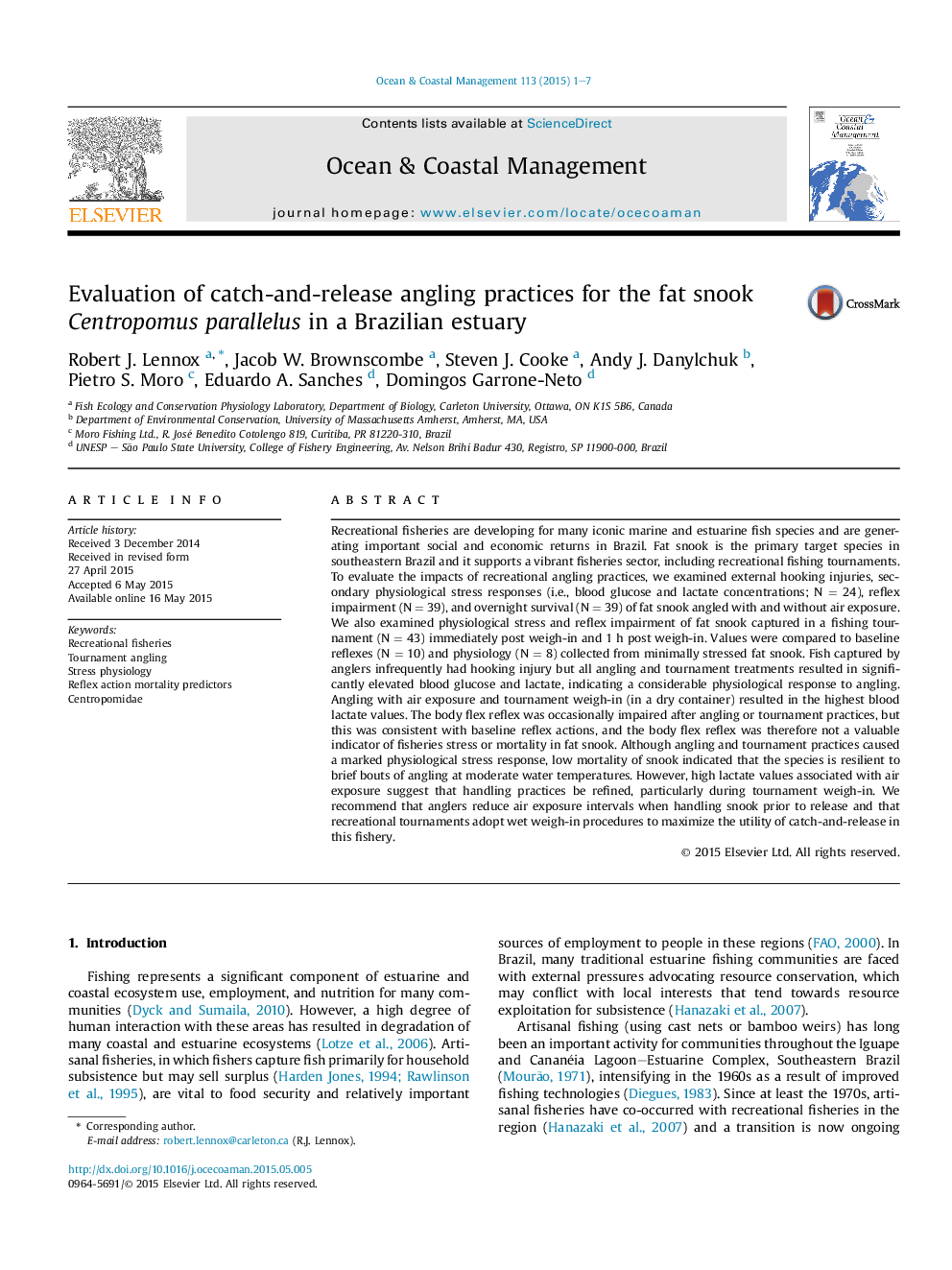| Article ID | Journal | Published Year | Pages | File Type |
|---|---|---|---|---|
| 1723458 | Ocean & Coastal Management | 2015 | 7 Pages |
•Angling elevated physiological stress of fat snook.•High blood lactate was associated with air exposure, particularly during weigh-in.•Angling and tournament practices did not result in significant hooking injury or mortality.•Adopting better handling practices is recommended to ensure fishery sustainability.
Recreational fisheries are developing for many iconic marine and estuarine fish species and are generating important social and economic returns in Brazil. Fat snook is the primary target species in southeastern Brazil and it supports a vibrant fisheries sector, including recreational fishing tournaments. To evaluate the impacts of recreational angling practices, we examined external hooking injuries, secondary physiological stress responses (i.e., blood glucose and lactate concentrations; N = 24), reflex impairment (N = 39), and overnight survival (N = 39) of fat snook angled with and without air exposure. We also examined physiological stress and reflex impairment of fat snook captured in a fishing tournament (N = 43) immediately post weigh-in and 1 h post weigh-in. Values were compared to baseline reflexes (N = 10) and physiology (N = 8) collected from minimally stressed fat snook. Fish captured by anglers infrequently had hooking injury but all angling and tournament treatments resulted in significantly elevated blood glucose and lactate, indicating a considerable physiological response to angling. Angling with air exposure and tournament weigh-in (in a dry container) resulted in the highest blood lactate values. The body flex reflex was occasionally impaired after angling or tournament practices, but this was consistent with baseline reflex actions, and the body flex reflex was therefore not a valuable indicator of fisheries stress or mortality in fat snook. Although angling and tournament practices caused a marked physiological stress response, low mortality of snook indicated that the species is resilient to brief bouts of angling at moderate water temperatures. However, high lactate values associated with air exposure suggest that handling practices be refined, particularly during tournament weigh-in. We recommend that anglers reduce air exposure intervals when handling snook prior to release and that recreational tournaments adopt wet weigh-in procedures to maximize the utility of catch-and-release in this fishery.
